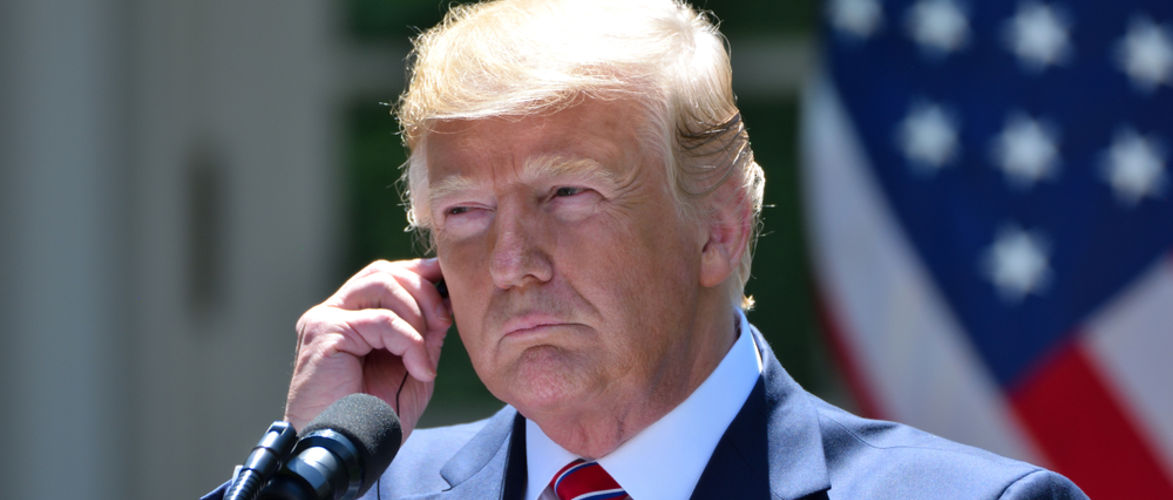By Ernst Wolff.
Last week, the global financial system experienced one of the most severe stock market crashes in its history. In the USA, the Dow Jones Index set two records at once – the fastest price drop since the Great Depression and the largest daily fall since its inception 130 years ago.
Market values of six trillion US dollars were destroyed, and a third of the profits made since US President Trump took office vanished into thin air.
Also the European stock exchanges experienced a severe downturn. The DAX fell by 1850 points and experienced its blackest week since the global financial crisis of 2007/08 with a minus of 13.5 percent.
However, the actual damage caused is likely to be considerably greater than these figures suggest. Since derivatives – i.e. bets on rising and falling prices – are also used to hedge risks, it can be assumed that the price drop on the stock exchanges incurred losses for major banks and hedge funds exceeding by far the reported numbers.
That alone would destabilize the basis foundation of the global financial system. On top of this, however, we are currently dealing with the highest level of indebtedness ever. According to conservative estimates, more than 250 trillion US dollars of debt must be serviced worldwide. As many creditors are becoming nervous because their debtors are experiencing payment difficulties as a result of the stock market turbulence, the fear of a margin call – i.e. a sudden large-scale call for debt by the creditors – is spreading.
As if these two problems were not enough, there are more to come: because of low interest rates and the central banks’ willingness to lend money, many investors who thought that the boom on the stock markets lasting for more than 12 years would last forever have speculated with borrowed money that they have now lost and have to pay back.
Other people have practised “leveraging”, i.e. borrowing money to increase their own bets or, to put it in the language of bankers: they have leveraged their bets – causing a multiplication of their losses.
In addition, another area of trouble has emerged in the last week: In view of the stock market quake many investors have looked for safe havens and shifted their money into government bonds and gold. This has driven the price of gold higher and higher and has created a new danger for the major banks.
In recent years, they have sold considerably more gold than they actually own. Since very high gold prices could cause many owners to convert their gold into money in times of crisis and the banks’ swindle would thus be exposed, the price must be pushed down by all means. This is exactly what we have experienced several times in the past week.
By far the biggest problem for the financial industry, however, is that the central banks, which have repeatedly stepped in as saviors in times of need over the last 12 years, are currently helpless in the face of current developments.
The central banks have already pumped huge sums of money into this system at ever lower interest rates, and have largely used up their powder. But even if they should decide in desperation to lower interest rates even further, i.e. into the negative range, and to inject additional trillions into the system, they will not be able to stop the consequences of the corona crisis, namely the disruption of supply chains, production losses and the absence of huge sales markets.
So what will happen? It is possible that some governments will follow the example of Hong Kong and order the distribution of helicopter money, i.e. money created out of thin air by the central bank to all citizens for immediate consumption in order to stimulate the economy without any quid pro quo.
But this will not solve the problem, it will only temporarily postpone it and ultimately exacerbate it. After all, it is the sure way to set in motion a galloping inflation, albeit with some delay.
Are there other options?
No one knows what the financial elite is capable of doing in this emergency situation, which is extremely dangerous for them, but it is reasonable to assume that they will take advantage of the situation to push ahead the abolition of cash. In addition, large companies and hedge funds will try to buy up at ridiculous prices medium-sized companies, which are currently experiencing increasing hardship. It is possible that in the near future there will be a closure of stock exchanges and a bank holiday, that is, a temporary closure of banks.
We are currently facing a phase in which the current system is revealing the full extent of its rottenness and also relentlessly revealing its true face: While the disruption of retail chains is likely to lead to looting of shops in the not too distant future, the financial elite will try to plunder the system for their own benefit until the painful end.
Can all this be prevented?
No, it is too late for that. But the increasingly obvious failure of politics, as well as the greed of big money, which does not cease even in times of need, will open the eyes of many people in the coming days, destroy illusions about this system and thus offer the historic opportunity to devote oneself extensively to the most important task of our time: To replace the current monetary system with a democratic monetary system that does not give unimaginable wealth to a tiny minority, but helps the overwhelming majority of people to live a dignified life in peace, freedom and social security.
+++
Thanks to the author for the right to publish the article.
+++
Picture reference: Poring Studio / shutterstock
+++
KenFM strives for a broad spectrum of opinions. Opinion articles and guest contributions do not have to reflect the views of the editorial staff.
+++
Support us with a subscription: https://steadyhq.com/de/kenfm
+++
You like our program? Information about further support possibilities here: https://kenfm.de/support/kenfm-unterstuetzen/
+++
Now you can also support us with Bitcoins.

BitCoin address: 18FpEnH1Dh83GXXGpRNqSoW5TL1z1PZgZK










Kommentare (0)